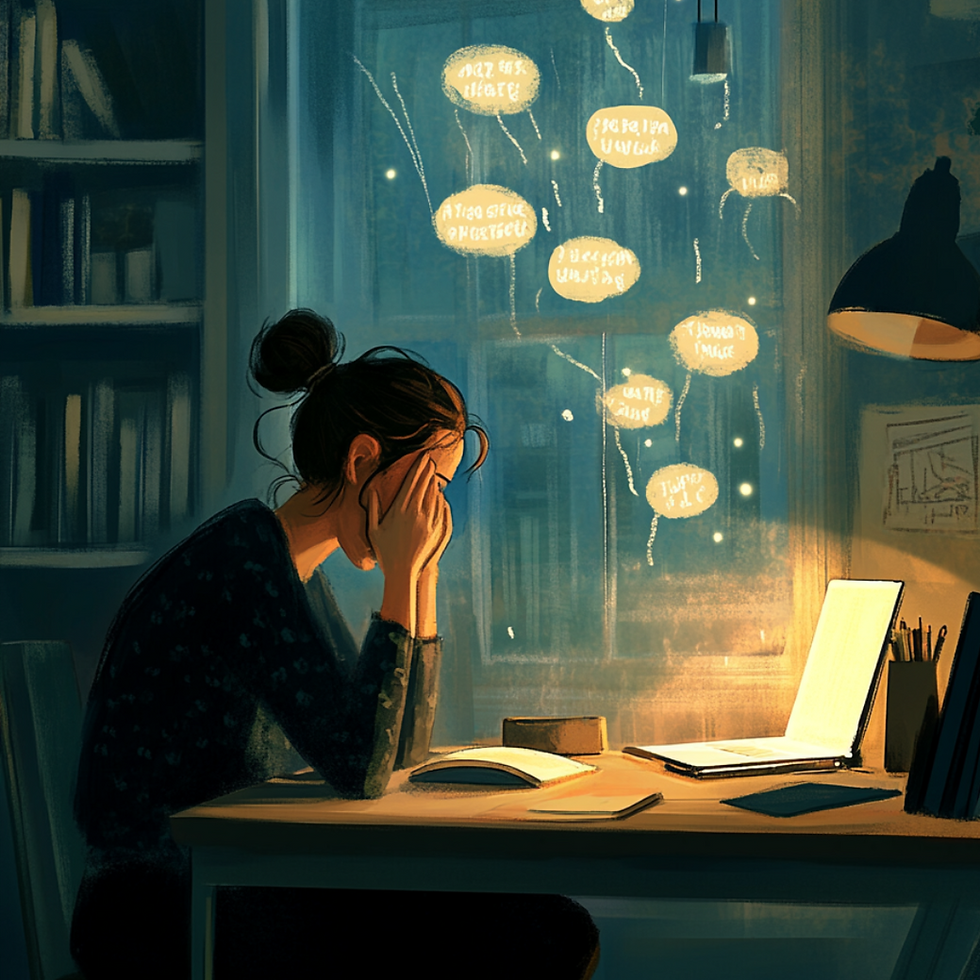Burnt Out or Just Bad Parenting?
- Briggett Harris
- Feb 17, 2024
- 2 min read
Updated: Mar 8, 2024
I've encountered a disturbing trend: the quick dismissal of parental burnout as mere incompetence or laziness. This judgment is not only unfair but dangerously overlooks a growing issue within our pressured society. Parental burnout is real, intense, and far more common than many would like to admit. It's a state of emotional, physical, and mental exhaustion caused by prolonged stress in parenting. It's not a sign of failure but a glaring indicator of the unrelenting demands placed on parents today.

First, let's clarify what parental burnout is not. It's not the occasional frustration or tiredness that comes with the territory of raising children. It's a chronic condition, marked by an overwhelming sense of depletion and a disconnection from your parenting role. Parents suffering from burnout often feel like they're going through the motions, unable to muster genuine emotion for their children's needs.
SIGNS OF PARENTAL BURNOUT:
Emotional Exhaustion: You feel drained, unable to cope with your daily responsibilities, or provide emotional support to your children.
Detachment: You find yourself withdrawing from your children, viewing your interactions with them as tasks to be checked off.
Loss of Parenting Satisfaction: You no longer find joy in parenting; it feels like a relentless grind with no reward.
Ineffectiveness: There's a pervasive sense of ineffectiveness, a belief that no matter what you do, it's never enough.
The causes of parental burnout are multifaceted, ranging from the societal pressure to be the 'perfect parent,' to the isolation many feel in their parenting journey, compounded by a lack of support systems. It's exacerbated by the unrealistic standards perpetuated by social media, where everyone else seems to be doing a better job at parenting.
Addressing parental burnout requires a societal shift in how we perceive parenting. It demands acknowledgment of the complexity and challenges of raising children. On a personal level, it begins with recognizing the signs in yourself or your partner. From there, seeking support is crucial, whether through therapy, community resources, or simply by opening up to friends and family about your struggles.
Remember, admitting to feeling burnt out isn't a confession of bad parenting; it's an acknowledgment of your humanity. It's a crucial first step towards finding balance, reconnecting with the joy of parenting, and, most importantly, ensuring the emotional well-being of both you and your children.
Hopefully, you have found this information helpful. As always, our therapist at Approaching Change LLC is here to support you.
Briggett Harris, LMHC




Comments